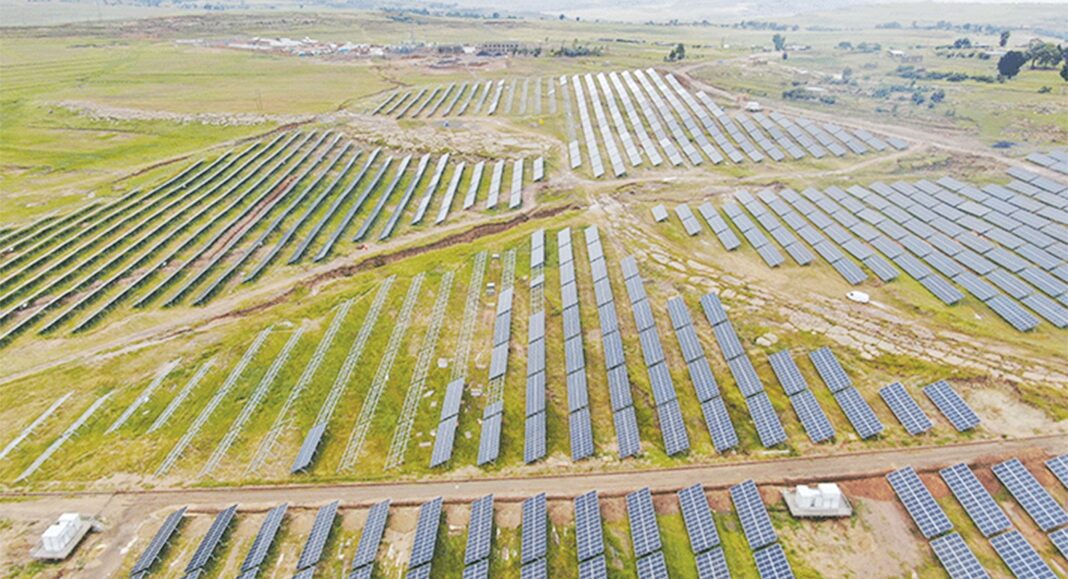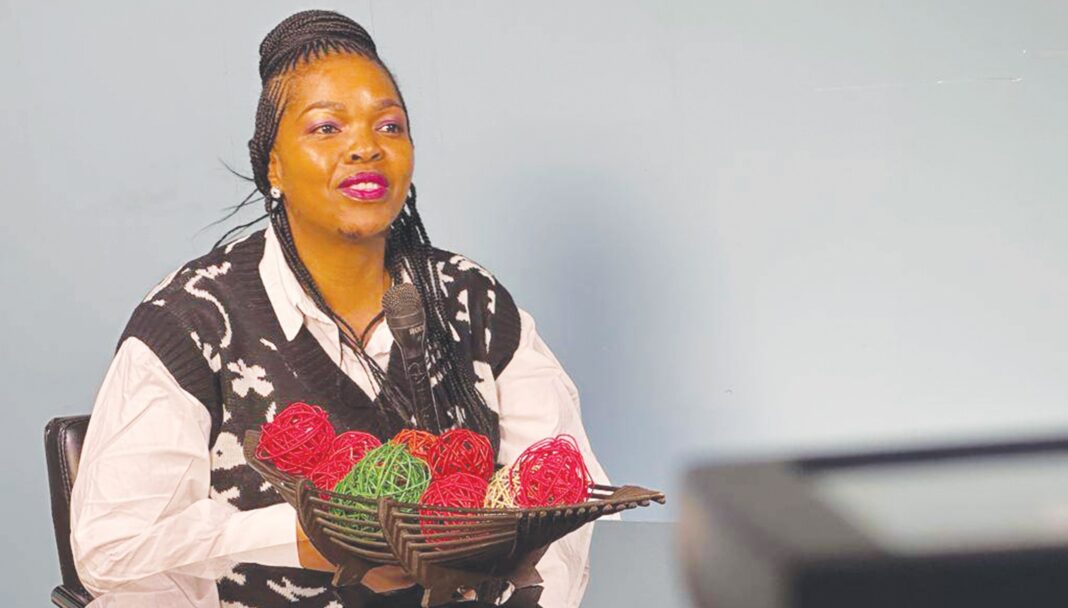‘Mantṧali Phakoana
Communities in Likhoele, Mafeteng who gave up part of their land to make way for a multi-million maloti solar power plant are demanding sustainable lifetime projects in addition to the various amounts of money they have received in compensation.
The villagers have been receiving monetary compensation depending on the size of their land, since the three-year project started in 2021.
The households are from Ha-Ramarothole, Ha-Sebusi, Ha-Ramohapi, Ha-Raliemere, Ha-Qobete and Ha-Rankapi. They received 40 percent of their agreed compensation in 2o21 and also in 2022. The remaining 20 percent is expected to be paid this week.
The project is financed by a soft loan from EXIM Bank of China which injected US$70.188 million (about M1,3 billion). The government of Lesotho chipped in with an addition M220 million covering the costs of land compensations valued around M57 million, tax obligations as well as operating costs of the Lesotho Generation Company (LEGCO) under the ministry of natural resources.
The villagers say that although they are grateful for the various amounts they received in compensation during the first phase of the solar plant project, this was not enough.
They wantthe implementers of the project; China Sinoma International Engineering, TBEA Xinjiang New Energy and the government, to establish sustainable projects, particularly for those whose land was given up to pave way for the construction of the 70MWp plant.
Local chief of Ha-Ramarothole, Konyana Ramarothole amplified the villagers’ demands during the handover ceremony of Phase 1 of the solar power plant in Mafeteng on Monday this week.
The project comprises of two phases. The first stage will inject 30MWp of electricity into Lesotho’s national power grid while the second part of the plant will generate 40 MWp.
The facility that occupied a 220-hectare plot of land has been installed in Ha-Ramarothole village, leaving almost 150 households without enough land to produce their own food.
“They (affected villagers) are going to face hunger for a very long time. Most of them were depending on their fields for survival,” Chief Ramarothole said.
He pleaded with the government and the two Chinese companies to establish sustainable projects for them before completion of the project this year.
“Please leave us with something, projects that will make us proud. We need projects such as greenhouses, which will enable us to produce crops to sell.
“We will be able to provide for our families. The projects will be around for a very long time and they will also benefit our future generations,” he said.
Chief Ramarothole indicated that although the affected communities were given money to compensate for their land, they were already hungry because they had spent it.
“Money does not last forever. We want lifetime projects.”
He also appealed to the project implementers to see to it that by the time they complete construction of Phase 2, they would have improved the football playground in the area.
“This would help fight crime.
“As community leaders from this area, we have pledged to keep this facility safe. It is a collaborative responsibility that we have vowed to undertake,” he noted.
The Ramarothole solar power is set to improve access to electricity in Mafeteng district and the whole country. According to the US Trade Development Agency (USTDA) in Lesotho, barely 30 percent of the households have access to electricity.
Speaking at the handover ceremony, Prime Minister Sam Matekane said the government plans to increase this accessibility to 40 percent. He did not say when this would be done.
The solar power plant will enable Lesotho to reduce its electricity import costs. The country imports power from South Africa and Mozambique to supplement its supply capacity from the ‘Muela hydropower station in Butha-Buthe.
Lesotho uses 196 megawatts of power, but can only generate 72 megawatts from the ‘Muela station.
However, the country’s position has been worsened by a sharp increase in the price of electricity by the two countries in recent months. The Mafeteng plant is therefore, expected to go a long way in augmenting electricity supply.
Matekane also paid his gratitude to the People’s Republic of China for providing his government with the needed financial resources for the project.
“The successful completion of this facility re-affirms Lesotho’s commitment in addressing sustainable energy solutions while also increasing efforts towards climate resilient low carbon pathways,” he said.
On his part, Thabana-Morena constituency legislator, Selibe Mochoboroane commended the Lesotho Defence Force (LDF) for deploying its personnel to safeguard the solar plant.
He indicated that the presence of the army had reduced the high crime rate in Mafeteng district, one of the highest in the country.
“I should pass my special thanks to you Ntate (Major General Matela) Matobakele, as the deputy commander of the Lesotho Defence Force for deploying soldiers to guard this place.
“Their presence has not only kept this facility safe but Mafeteng in general. They have forced criminals to behave,” said Mochoboroane, who is also the minister of health.
“Mafeteng has been known for its high crime rate, but since the deployment of soldiers, this has gone down,” he noted.
He further pleaded with his counterpart, Natural resources minister Mohlomi Moleko to ensure that Ha-Raliemere village is also connected to the grid as it was the only nearby village without electricity.
But Managing Director of the Lesotho Electricity Generation Company, ‘Mathabo Mahahabisa, accused some of the villagers of spending their compensation recklessly.
Asked to respond to the community’s demands, Mahahabisa told theReporter in an interview on Wednesday this week that following the first installment of the compensation, the ministry had conducted an in-depth survey to learn how the villagers had utilised their money.
The survey revealed that most of them did not know how to spend what they received wisely.
Mahahabisa said upon discovering this, the ministry had invited experts on financial management to advise the villagers before the disbursement of the second instalment.
“There was marked improvement after this,” she added.
She also indicated that the ministry was already in process of establishing lifetime projects that would improve the affected villagers’ livelihoods.
“However, since we have learnt that compensations through money are not lifetime solutions, we approached both community councillors and local chiefs to ask them to submit their proposed projects with specific areas of their interest.
“We had agreed they should be submitted by March this year but no submissions have been made to date,” Mahahabisa said, revealing that the ministry was yet to make a follow-up on this.
But, both Chief Ramarothole and Tṧana-Talana councillor Moeketsi Sebofi have disputed the ministry’s claim.
They told this publication in subsequent interviews also on Wednesday that the ministry wanted to establish a rehabilitation centre in the area to teach communities how preserve the environment.
They argued that as much as that is also important, the villagers needed income generating projects to sustain their lives.
“We need greenhouses, borehole taps and other longtime projects in compensation, not just the money,” Sebofi said.
“We had meetings with ‘M’e ‘Mathabo (Mahahabisa) yes, but these were held before the commencement of the project and discussed how we were going to be compensated. “There was another meeting between the ministry and local chiefs and councillors from the six affected villages. It was during this engagement that officials from the ministry informed us that the government wanted to establish a centre to teach communities about the need to preserve the environment. But as much as that is also important, it does not improve our lives directly,” he added.








